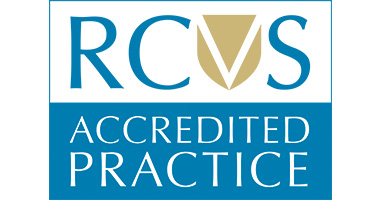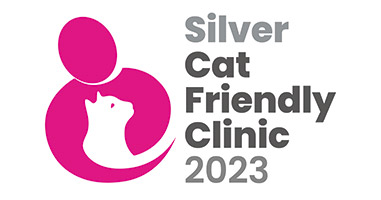Flea and Worm Advice
Both internal and external parasites can affect our pets. Some of these can be concerning as they can make them or even us ill.
Most common parasites include:
Fleas - can infest dogs, cats and rabbits, making them itchy. They are hard to get rid of, particularly as they have a dormant stage in your home. Fleas can also transmit worms and make your pet anaemic in large numbers.
Ticks - generally more likely to pick up if your pet walks through long vegetation. Can cause reactions where they attach and transmit diseases.
Intestinal roundworms - picked up via eating tiny eggs in the environment. Can cause gastrointestinal issues, poor growth and anaemia. Those that hunt or scavenge are more at risk.
Tapeworms - look like little grains of rice in their poo. Transmitted via hunting or eating infected fleas.
Lungworm - transmitted via slugs/snails and their secretions. Pets in wet areas who eat grass/drink outdoors are more at risk. Can cause respiratory and clotting issues and can be fatal.
There are various forms of treatment and preventatives for parasites and which ones to use are best based on your individual pet's risk of disease and lifestyle. Our aim is to keep treatments to the minimum necessary and consider the impact of treatments on the greater environment whilst ensuring your pet is protected.
Do feel free to bring along your dog's quiz results and discuss with the vet at your next visit. This quiz may help www.petparasiteprotection.co.uk/dog/risk-checker
Fighting Fleas
How to get rid of a flea infestation
FACT = there are 4 stages in the flea lifecycle: eggs, larvae, pupae and adult fleas. Only adult fleas live on the pet- the rest live in your home and garden environment.
1 Correctly apply flea treatment as advised by your vets to all cats and dogs in your care, make sure it is the correct dose size for each animal’s weight. The product will kill adult fleas on the pet within 24 hours. It will kill any more that jump on and also sterilise the female fleas so any eggs she lays will not hatch.
FACT = female fleas can lay up to 50 eggs a day
2 Vacuum the home thoroughly, ensuring you move and vacuum under all furniture and in all the nooks and crannies. Do this even if you have wooden or laminate flooring. This will mechanically remove some of the eggs, larvae and pupae in the home environment.
FACT = flea larvae move away from light
FACT = flea larvae can live between cracks in floorboards
3 Wash pets’ bedding at 60oC to remove some of the immature stages.
4 Thoroughly spray all floor space in the home with a household spray – this may require more than one can (you need to apply it everywhere the pet goes- remember the car!) This will kill the eggs and larvae in the home that come into contact with the spray. Remember to move furniture and spray underneath.
FACT = insecticidal home sprays do not kill the pupal stage
5 Encourage the pupal stage of the life cycle to hatch out into new adult fleas, so they will jump onto your treated pet and die. This can be done by giving them warmth, vibration, CO2 and humidity. To provide these stimuli:
Turn up the heating in the home
Place wet towels on warm radiators/ bowls of hot water on the floor/ and boil the kettle in the rooms of your home
Vacuuming will generate warmth and vibration and encourage pupae to hatch
6 When new adult fleas emerge from the pupae they will jump onto the pet which has been treated with appropriate flea treatment and be killed within 24 hours. These fleas will be seen on the pet before they die.
FACT = Eradicating the pupae from the home can take several months. Therefore it is normal to continue to see live fleas on pets for this period
7 Thoroughly vacuum the home again 2 days after application of the household spray including all the places you do not normally get to (under the sofa between sofa cushions etc).
FACT = Regular vacuuming will help speed up removal of eggs, larvae and pupae from the environment
8 Ensure your pets have their usual run of the house. As the adult fleas emerge from the pupae they want to jump onto your pet to feed, if the pets are not around the fleas will jump on to and bite you instead!
9 It may take several months to remove all the life stages from your home. Until the environment is free of healthy eggs, larvae and pupae you will still see fleas on your pet as they emerge from pupae.
10 It is essential that you keep up treatment all year.
Don’t forget…
It can take months to rid your home of fleas- a single treatment will not be sufficient!
Treat all the areas your pets frequent such as the car, outdoor buildings, dog kennels etc.
For effective flea prevention (once the initial infestation is eliminated), you should continue treatment all year round. Fleas can live and breed all year in your home.
Prevention is always better than cure.
Any breaks in treatment will mean your pets are at risk of picking up fleas again. Once on your pet they will start rapidly breeding and laying eggs (50 per day!) which will infest your home.
If you fail to keep up with regular treatments your home and pet are at risk of re-infestation!!



